
Tom Odell: “My whole career, I’ve always thought it’d be really interesting to record with just piano and voice” Photo: Sophie Green
The billion-streaming singer-songwriter discusses life as an independent artist, minimalism, and his beautiful new album ‘Best Day Of My Life’
Having fulfilled his major label contract back in 2021, English singer-songwriter Tom Odell is now a truly independent artist, and with that independence comes freedom. On latest release Best Day Of My Life, it’s the freedom to make an album that listeners can sit with, soak up, and follow from start to finish. Using only piano and vocals, there’s a poignancy to the collection of songs that tackle Odell’s own struggles with anxiety and the tendency to suppress his own feelings. By the time of closing track Smiling All The Way Back Home, a point of acceptance has been reached – there’s that newfound freedom again.
That’s not to diminish Odell’s past work. A BRITs’ Critics’ Choice Award winner in 2013, his platinum-selling debut album Long Way Down topped the UK charts and introduced a talented songwriter capable of great emotion, with the ability to write music that endures – in August 2022, a decade after its initial release, the haunting single Another Love reached one billion Spotify streams. Odell’s fourth studio album Monsters was released in 2021 and augmented Odell’s signature sound with a gratifying flurry of synths and beats, highlighting his desire to evolve as a songwriter.
During our recent Zoom call with Odell, we got to discuss life as an independent artist and how – inspired by a Rick Rubin quote – constraints aided the creation of his new album…
Click here for more interviews
How much overlap was there from Monsters to writing the songs for Best Day Of My Life?
“It was completely separate. I went away for the summer in August 2021. I travelled with my girlfriend around Europe for four weeks, we packed our bags and left. When I got back to London, I left Columbia Records and suddenly felt very inspired to make an album.
“My studio is a 25-minute walk away along the Regent’s Canal. Each morning, my walk would become a little bit brisker as I felt the urgency to write, and the songs just poured out. I wrote and recorded the album in just under three months. I didn’t have too many preconceptions about what the album should be, the only one being a Rick Rubin Instagram quote which said something like, ‘Through arbitrary limitation, the results can be limitless.’”
And that quote became important?
“My co-producer Laurie [Blundell] and I sort of chased that, and kept applying that rule… just do the piano and voice, make an album. I’ve always wanted to do that. My whole career, I’ve always thought it’d be really interesting to record with just piano and voice. So that’s what we did, and it influenced the songs being written. It was very interesting, because in this time, where you’ve got so many possibilities with technology now… any instrument, any sample in the world… suddenly applying this thing of having to only use this one piano and this one room, one microphone, I realised so much identity was found in that limitation.”
How did you start writing for the album?
“I think I had Best Day Of My Life. It was originally called Worst Day Of My Life. I had the melody and that line from the summertime, before I got away. I was home and that idea came out. Then I changed it to Best Day Of My Life and liked the juxtaposition of that hyperbole of, ‘This is the best day of my life,’ with this quite melancholic melody and harmony beneath.
“With the piano part, we were adding a lot of suspensions in so there was a tension that was permanently unresolved and had a darkness to it. It feels as if it never quite breaks. That combined with the lyric; Laurie and I felt that was very interesting and expressed something. I felt like I could relate to that feeling a lot. So that was the first song, and there’s a song called Just Another Thing We Don’t Talk About. Those two songs were the staples of the record and the other songs we built around them.”

Tom Odell: “I wanted to express this journey of coming to a point of acceptance with oneself” Photo: Sophie Green
How much of your writing on the piano is instinctive and how much of it is purposeful?
“I would say a bit of both. I’ve always played the piano, it’s such a part of what I do, intuitively. You can completely change a song with the way you accompany yourself on the piano. I did the whole album with Laurie who is a very well-trained classical pianist and has taught classical piano. He’s studied music very deeply and he really challenged me with my piano playing.
“We were both very interested in minimalism: Philip Glass, Erik Satie, Nils Frahm and Max Richter. We were aware that we were making a very minimal album and suddenly you change one note in the counterpoint and the entire song changes. We became very interested in that, there was a hell of a lot of time and consideration spent meticulously trying to understand the piano parts and trying to create this hypnosis with the music.
“One of the things I had a growing interest in whilst making the album is that so many songs today – with the influence of streaming – are short and crammed full of as much information as possible. All media we consume today; it’s trying to tell the most amount of story in the shortest amount of time.”
And was that something you were looking to avoid?
“I’d read two books over the summer. One was called How To Do Nothing by Jenny Odell, and then another was called Underland by Robert Macfarlane. Both are explorations of space and time. I was interested to see if, rather than filling the music full of stuff, I could actually create a space which is very calm. It’s almost meditative at moments and people can actually take time out from their day, rather than be assaulted by all this content the whole time. That’s what we did with the films as well, the animations.”
The three instrumental songs on the album really help to create that contemplative feel…
“I’m sure I’m not the first artist to sit here and go, ‘The album should be listened to as a whole,’ but this is certainly the most complete piece of work I’ve made. Even the way the tracklisting works, there’s a sense of the beginning of a day and the end of the day. I’ve tried to catch that with the sunrise and the sunset, and I hope people get that sense of the journey and the difference in the character who’s singing at the start to the character at the end.
“I wanted to express this journey of coming to a point of acceptance with oneself. Rather than trying to cure myself and my struggles with depression and anxiety, this album was much more about learning to be compassionate towards myself. So much of the album is about letting go and releasing the tight grip.”
It’s certainly there in the lyrics. The album opens with the repeated line, ‘It’s the best day of my life,’ and sounds like you’re trying to convince yourself of that. Then the last line of the album is, ‘You’re going to be smiling all the way back home,’ and it feels like you have managed to convince yourself. In terms of writing that journey, would you be thinking you needed to fill in that part of the story and write a song for it, or was it more of a natural process?
“So much of my thought is two-dimensional, but then there’s this deeper knowledge that we all have which is very three-dimensional. The bit that good music comes from is the bit that is intuitive and full of feeling, rather than thought. When I made this album, one of the things that I was trying to do is get out of the way and not premeditate what it should sound like.
“That’s very difficult to do when you’re making an album. You’ve always got one eye on the time or on the future as you’re like, ‘What could this album be?’ All that stuff does is – when you premeditate and make it like something in your head – you end up closing the doors to where the spontaneity and the real beauty is. This album was so much about me getting out of the way of it and letting it become what it was going to become.”

Tom Odell: “ The bit that good music comes from is the bit that is intuitive and full of feeling, rather than thought” Photo: Sophie Green
What did that look like in practical terms?
“We chipped away and then got to the end of the process and there was no slaving over the tracklisting, there was no slaving over the title of the album, it was all very evident. It might not have come about in exact chronological order, but it was pretty close. There were a few songs I wrote for the album that didn’t make the cut.
“Smiling All The Way Back Home was one of the songs that I’d had knocking around for a while and had the title. I’d actually started that with Rick Nowels in LA, maybe four years ago, and I could never finish it. I was always like, ‘That’s a beautiful title, I can relate to it.’ But also there’s a depth to that line and I could never quite work out what to do with it. It’s the beginning of the end of the bad time, and it’s the weight lifting from your shoulder. That’s what the song became about.
“I would also say that I do tap into a lot of old ideas. For example, the melody for The Blood We Bleed – I probably had that melody in my phone for a good few years and could never quite work out what it was. Often I’d sit down at the piano and it would come up and then I’d sort of tap into it. I never forced it too much. That’s the key, I think.”
Is that easier to do now as an independent artist than with the pressures of a label? How does that impact the actual creative process?
“It’s hard enough making music that you like and you think is good and you want to put out in the world. I guess there was always this added filter of, ‘Do the record label like it?’ I always found that to be very tiresome and pretty unnecessary. You go through this incredible journey, which can be quite up and down with moments of euphoria and moments of real struggle, and then suddenly you sit there in the office of someone whose opinion you’ve got to pretend to respect. It feels fucking great to not have to do that any more.
“I really feel for young artists that get messed around by them. I’ve seen so many young artists getting signed, promised the world, and then thrown out like a bit of garbage. I really do struggle to say many positive things about the whole thing. During my last couple of years at Sony, the people that were calling the shots there made it so hard for me to put music out. I still managed to do it and I’m proud of myself for doing that, but they made it so difficult. It just feels so great to be out of that experience.”
And does that experience then impact the way you feel about the songs?
“I’ve never put out a song that I didn’t love. Whilst I say it was hard and it was a battle, nine times out of ten I managed to win that fight and put out the music that I wanted to. I don’t in any way feel like the albums before are diminished by that struggle. It’s just that everything always took longer. I’d finish an album and sometimes it wouldn’t come out for another 18 months.
“I do feel a particular kinship to these songs. Because of that freedom of the process, I was able to go a step further with them and I was maybe able to be braver and more personal. I do think it’s a more personal album because of that.”

Tom Odell: “I do tap into a lot of old ideas” Photo: Sophie Green
But have you always found songwriting a conducive space for unfiltered self-examination?
“Yeah, I would say so. The things I’m prepared to say in songs, a lot of the time I would struggle to say in real life. It’s definitely the place I feel comfortable to share most things. I’m always aspiring to say something that’s really honest, and the more cuttingly honest the better, but also insightful.
“The songs that really touch me are the ones where I hear a line and go, ‘Wow, I’ve been thinking that my whole life and I’ve never heard it put into words.’ It may be something very simple and subtle, but it’s the relationship between those words and the melody and the way they make you feel that just touches you. It’s almost like a hand reaching out to you through the music. In that one moment, you feel a little bit less alone. For me, that’s what it’s all about.
“Music has this tremendous power to transcend so many of the things that divide us and actually show us that every one of us has so much common ground. The more I spend time making music, the more I realise how privileged I am to do so, because it’s the best art form for that. It transcends time, generations, nationalities and all these silly things.”
In terms of your own achievements, what are the things that you cherish the most as a songwriter?
“The thing for me is, when I look down into the audience – when I’m singing a relatively obscure song that hasn’t been streamed much – and one person is screaming out the lyrics and it feels like that song means something to them. Those moments are really beautiful because there’s an equal amount of times when you might look into the audience and see someone on their phone or yawning, which is a very different experience. But yeah, it’s those moments where you feel as if the songs have meaning. The rest of the stuff is just bollocks, like sales and awards. For me, it’s about the songs and them connecting to people in a genuine way.”
Tom Odell’s Best Day Of My Life is out now. To purchase the album and for all the latest live dates, head to tomodell.com
Click here for more interviews


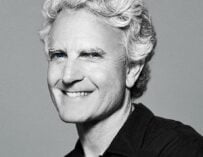

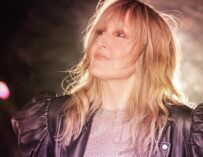



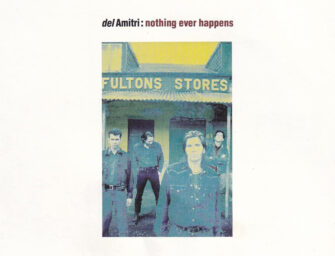

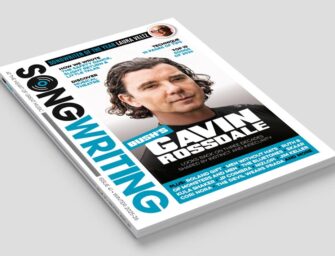
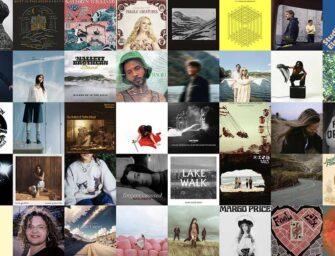























Related Articles